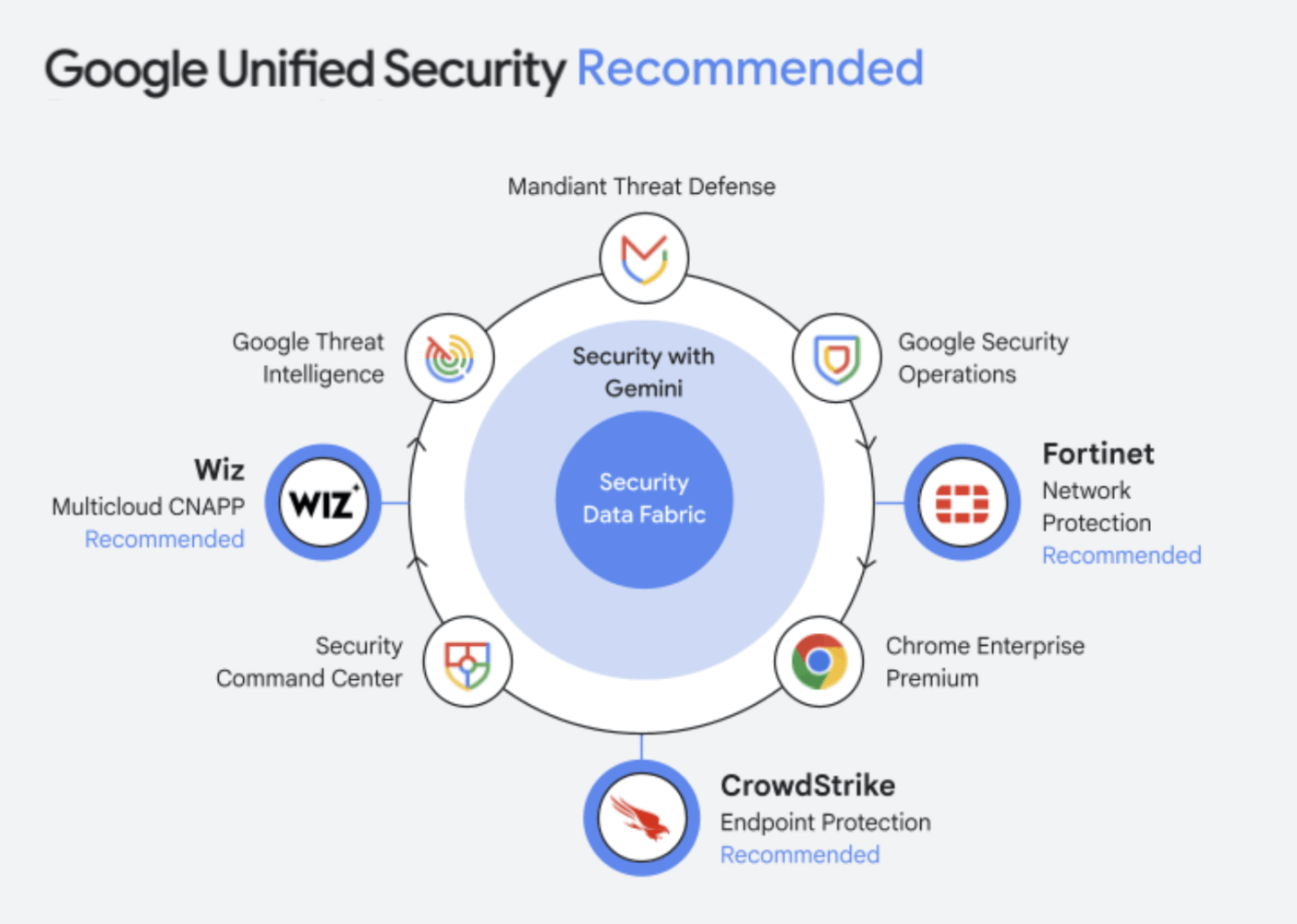There are plenty of choices for businesses when it comes to security. One could say there are too many of them in the public cloud domain for little overall gain. Google wants to ensure that customers can trust those choices by guaranteeing interoperability and integration. In said attempt, it has unveiled the newly launched Unified Security Recommended program. CrowdStrike, Fortinet, and Wiz are the first to join in.
The three partners involved are familiar to Google; in fact, Wiz is so closely tied to Google it will very likely become part of it. Fortinet and CrowdStrike, on the other hand, have been strategic partners of Google Cloud since 2018. It is therefore not surprising that these security players are the first to fill the gaps in Google’s “security data fabric,” as it describes it.
Interwoven
As you would expect from a hyperscaler, end-to-end security at Google Cloud can largely be managed through Google Cloud itself. Threat intelligence, TDIR, SecOps, and posture management can be purchased from Google’s own portfolio. Chrome users also have the option of using Enterprise Premium for browser protection. In other words: many of your security needs can be fulfilled without involving any third party.
However, Google Cloud has spotted at least three gaps that need to be filled in order to form a complete wall around the security data fabric. The company recommends using Wiz for multicloud CNAPP, Fortinet for network protection, and CrowdStrike for endpoint security. This leads to the diagram below (see source):

The Recommended program is not just about platforming those with a long track record as a Google Cloud security partner. Google points to an important aspect of the program: the shared commitment to AI standards, including support for the Model Context Protocol (MCP). MCP allows AI models to work predictably with security tools, giving Gemini models in particular knowledge of the contextual information provided by Wiz, Fortinet, and CrowdStrike.
This enables new AI agents, such as the alert triage agent in Google Security Operations, to conduct autonomous investigations. The agents can query partner tools for telemetry, enrich investigations with third-party data, and orchestrate response actions across the entire security stack.
Simplifying a fragmented market
Google reiterates a well-known fact: companies struggle with dozens of security tools spread across cloud, network, identity, and endpoints. Google promises that the new program will reduce this complexity. Instead of assessing complex integrations itself, Unified Security Recommended checks the capabilities of partners and ensures good interoperability with Google Security Operations, Google Threat Intelligence, and Security Command Center.
To elaborate further on the three launch partners: each brings its own expertise to the table. CrowdStrike links the Falcon platform to Google’s threat intelligence for end-to-end visibility across endpoints, identity systems, and cloud infrastructure. Fortinet provides network telemetry to Google Security Operations via FortiGate and FortiSASE for uniform detection and policy enforcement in hybrid environments. Wiz integrates with both Google Security Operations and Security Command Center to prioritize cloud risks across Google Cloud and multicloud deployments.
Broader trend visible
The program is a logical but also layered step for Google Cloud. Following the announced acquisition of Wiz for $32 billion, the company seems aware of the proliferation of security issues. The strengthened collaboration with CrowdStrike and Fortinet suggests that Google does not want to or cannot be a jack-of-all-trades in the field of security.
Availability and expansion
All Recommended partner solutions are available through the Google Cloud Marketplace. This makes purchasing as easy as you would expect from a public cloud service. Google has announced that it will add more partners as the program expands into other domains, including identity, data protection, network security, and cloud infrastructure. For major players in these domains, there is therefore ample opportunity to be at the forefront of Google’s cloud offering.
